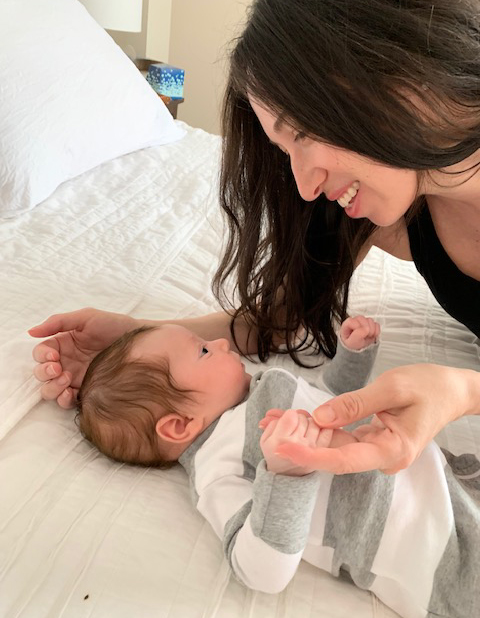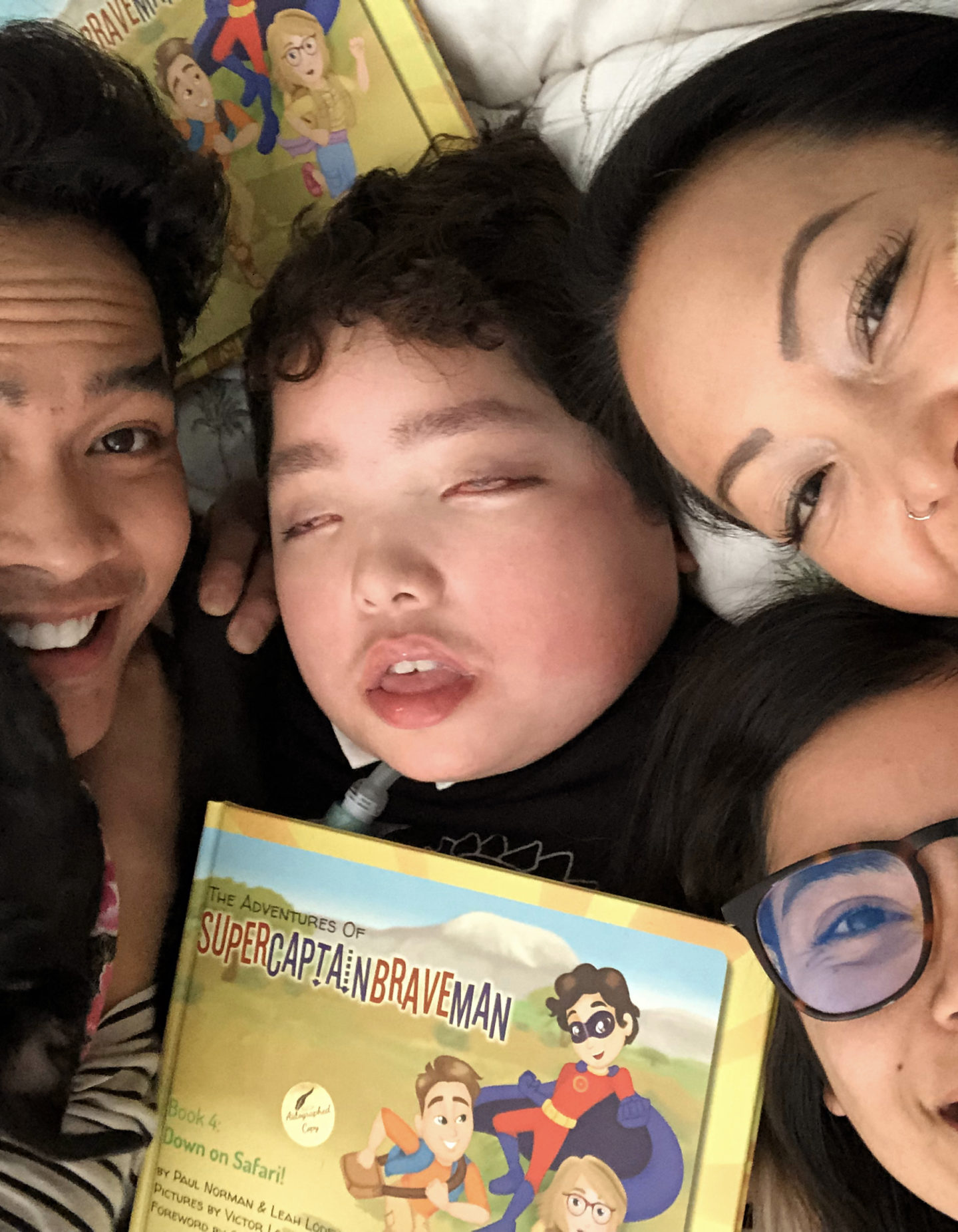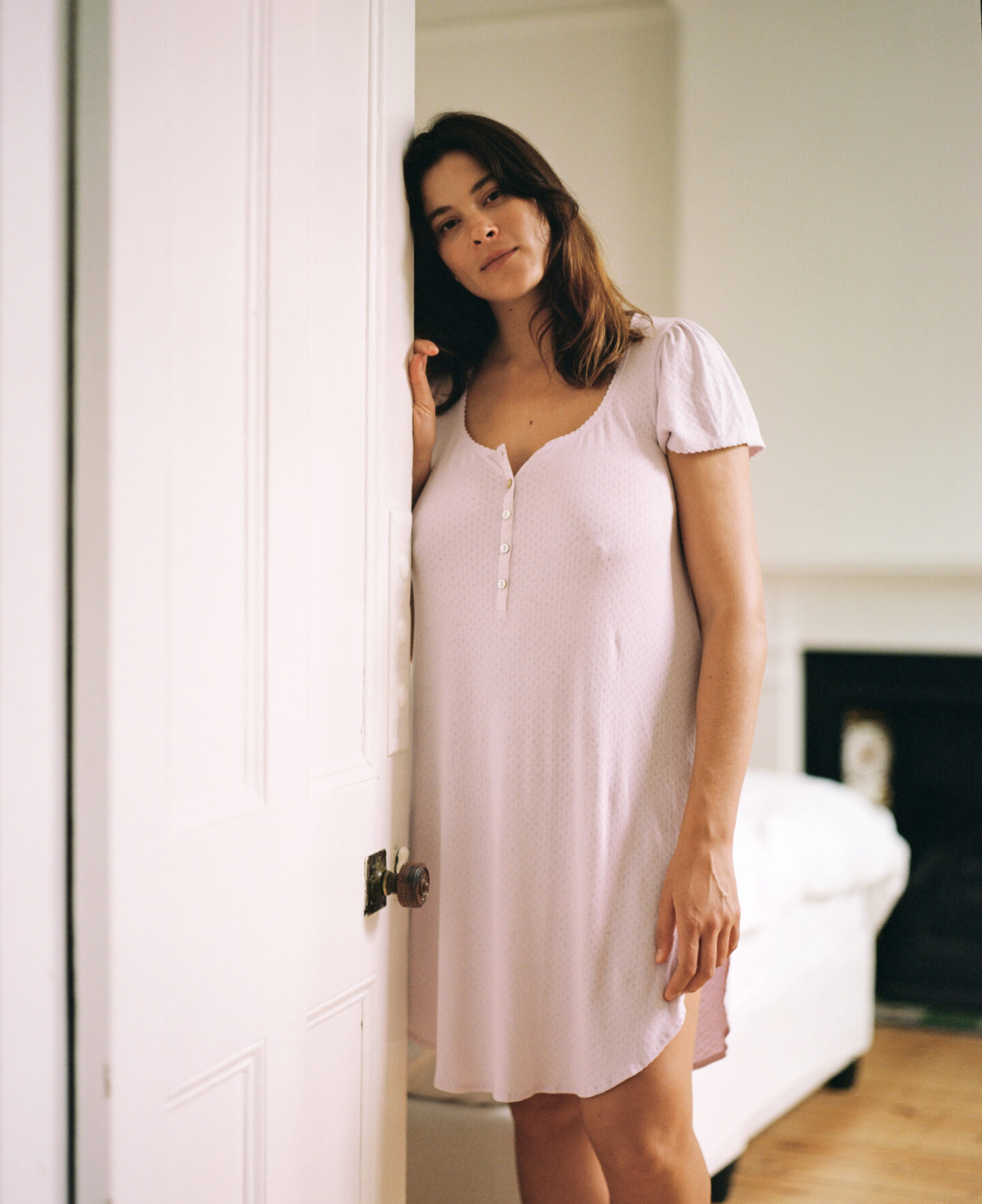I had always assumed I would breastfeed. That felt important to me. My mom breastfed my sister, brother and me and, in general, I’m someone who leans towards caring about eating well and being thoughtful about good health. My siblings and I all have autoimmune diseases, so we’ve been on our own food journeys, and I had this vision of breastfeeding in that I wanted to provide the ultimate source of nutrition for my baby. And in my mind, it was also the ultimate connection with your baby.
I wasn’t in the dark on how hard it might be. I had many friends who’d gone through it, and I had no illusions that it would be easy. In my third trimester, I had already made a connection with a lactation consultant and I opted into lactation classes at the hospital. I truly thought I had armed myself to embrace the moment – challenging, magical, my journey with our babe.
If I’m being honest, breastfeeding went awry from the beginning. It was really hard for Jonah to latch starting in the hospital and by the time we came home, he was still struggling. With our lactation consultant, we tried a nipple shield, where we saw a little bit of progress, but still it was hard. This was just the beginning. I had no idea what was in store.
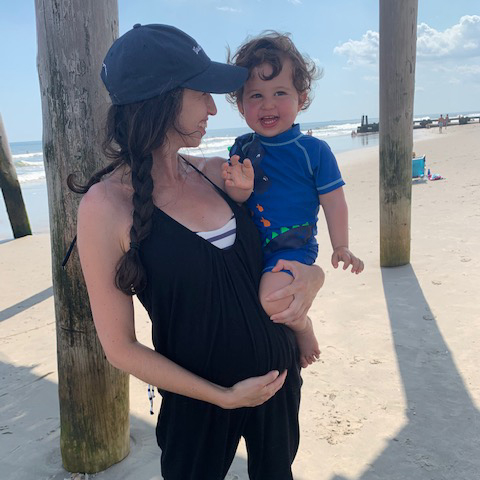
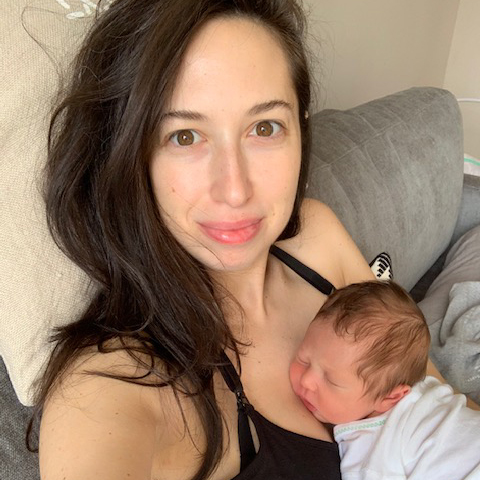
I stayed on the path with my lactation consultant and did all the things – pumping, teas, different positions – but it wasn’t working. Finally, she had me do a “pumping challenge,” and exclusively pump for 24 to 48 hours so we could see what was coming out. It was devastating. I think one ounce came out of one breast. We were literally measuring it with a syringe in milliliters every three hours. I had this moment of realization that he was starving. The other piece to this is that I have Crohn’s Disease, and while I felt amazing throughout the pregnancy and got an A+ on my monthly growth scans, my doctor had warned me of a possible flare up after pregnancy, which happened almost immediately. So it was all sort of happening at the same time.
I’ll never know if my inability to breastfeed was due to the challenge my son had as an eater or because my supply wasn’t great as a result of my flare up. Or maybe it was just bad luck. Or some combination of it all. I was super engorged, so I knew milk was in there at some point. But it just didn’t work out for us. I tried so hard for three weeks with all the resources I had, but at some point you can’t starve a child because you want this so badly. It was a really emotional decision, but I decided to give up breastfeeding, and in some ways doing the pumping challenge made it easier. It was so clear that I wasn’t producing enough. I remember when I texted the lactation consultant my results, and her reply back was simply, “I’m so sorry, Katie.” She had had so much confidence through the process that we’d find the solution together, and I knew at that moment it was over.
At some point you can’t starve a child because you want this so badly.
I’m sure there’s some person out there who would eat the 47 cookies and do all the things but in the throws of sleep deprivation and new motherhood and the sadness of it all, I needed for us to find another way. And you know what? I found a sense of relief in bottle feeding. I didn’t feel less of a connection with my child. If anything, I felt I could breathe because I wasn’t hysterically crying and struggling to do something that wasn’t working for us.
Once I came to terms with it, I thought I had gotten through the “hard” part, but the fact is that the entire narrative around postpartum life is around breastfeeding. When you check in at the pediatrician or your postpartum OB visit, they ask if you are breastfeeding. Whether it’s the journey back to work or the challenges of breastfeeding a newborn in public, the question of whether you are breastfeeding is the central story. It definitely felt like there was this breastfeeding world that I couldn’t be a part of. And truthfully, it would’ve mattered if I hadn’t wanted it so desperately.
By the time I had my second baby, we were in the middle of a pandemic and I had to decide if I was going to try again. My children are only 18 months apart and I still felt so scarred by our first go around. In the midst of the hardest year of our lives (and truly I felt grateful for the security we had in the pandemic), I didn’t know if I could go through that again. I had been strong for my family throughout that year – getting Covid while pregnant, working full time without childcare, moving states. It felt like the thing that could break me. The emotional fear of what that experience was like the first time around and the vulnerability of the moment we were in, it was too much. I knew I couldn’t be the mom my kids needed me to be and go through that again in the middle of an international crisis. I was too exhausted and it was all too real.
I wish I had the strength not to explain myself every time someone asks if I’m breastfeeding. “No – I couldn’t, I didn’t have enough supply,” I say. I don’t know if it’s to protect myself from their judgement, or that on some level I’m still rationalizing it for myself. Deep down, I know there doesn’t need to be a justification and that twice, for very different reasons, I did what was best for my family. But I’m welling up with tears even as I talk about it now, with two happy and healthy boys downstairs, so it’s a part of our story I’m still working on.
I will say that a silver lining to not being able to breastfeed is getting to watch my husband and my own mom feed my children. For them to have the same bond that I get to experience is really special, too. And I’d be lying if I said it wasn’t less pressure. I was still the parent who did all the nighttime feedings, and it wasn’t like I wasn’t up every few hours, but the idea that someone else can have a sweet moment with your baby is really special. Your heart opens in a way I can’t describe. Plus, after going through that experience, knowing how many ounces of food my child is getting is a relief you feel in your core. I never had to feel they weren’t getting the nourishment they needed to thrive, and that, in the end, was the ultimate gift.
